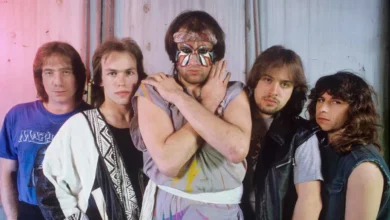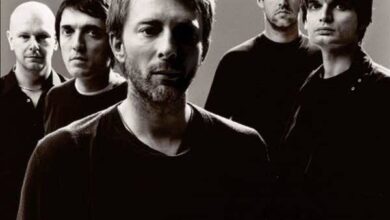Message in a Legacy: Sting and The Police’s Indelible Mark on Music, from Reggae-Rock Fusion to Timeless, Haunting Storytelling

Few bands have left a mark as distinct and enduring as The Police. Rising from the late 1970s punk and new wave movement, they fused reggae, rock, and jazz-inflected musicianship into something unique. At the heart of their success was the unmistakable voice and poetic lyricism of Sting—born Gordon Sumner—a frontman who evolved from the band’s charismatic leader into one of the most celebrated solo artists of the modern era.
From The Police’s infectious rhythms and haunting narratives to Sting’s introspective solo work, their collective legacy is more than just chart-topping singles. It is a testament to storytelling, sonic experimentation, and the power of music to evoke deep emotions. Whether through the eerie paranoia of Every Breath You Take, the dystopian loneliness of Message in a Bottle, or the ethereal sorrow of Fields of Gold, Sting and The Police mastered the art of blending melody with melancholy, leaving behind a catalog that remains timeless.
The Police: Reggae-Rock Pioneers with an Edge
When The Police burst onto the scene in the late 1970s, the music world was shifting. Punk had revolutionized the industry, but audiences were hungry for something more sophisticated yet still raw. Enter The Police, a trio consisting of Sting (vocals/bass), Andy Summers (guitar), and Stewart Copeland (drums). Their fusion of reggae rhythms, rock energy, and jazz-inflected musicianship set them apart.
Their debut album, Outlandos d’Amour (1978), introduced the world to their sound, with tracks like Roxanne—a reggae-infused love song about a prostitute—and Can’t Stand Losing You, a darkly humorous take on heartbreak. These songs showcased Sting’s ability to craft narratives that were simultaneously haunting and relatable.
As the band evolved, so did their sound. Reggatta de Blanc (1979) further cemented their status, with Message in a Bottleand Walking on the Moon demonstrating their mastery of atmospheric, reggae-tinged rock. But it was Zenyatta Mondatta(1980) and Ghost in the Machine (1981) that saw them reach new heights, blending political and philosophical themes with catchy hooks.
By the time they released Synchronicity (1983), The Police had become global superstars. The album’s centerpiece, Every Breath You Take, was both a commercial juggernaut and a lyrical paradox—often mistaken for a love song, it was actually a chilling meditation on obsession and surveillance.
The Sting Effect: A Poet’s Evolution
Following The Police’s acrimonious split in 1984, Sting embarked on a solo career that showcased his artistic depth. His debut album, The Dream of the Blue Turtles (1985), saw him embrace jazz influences, with tracks like If You Love Somebody Set Them Free and Russians exploring personal liberation and Cold War anxieties.
Sting’s ability to weave social commentary into haunting melodies became even more pronounced in later works. Englishman in New York (1987) celebrated eccentricity, while Fragile (1988) was an elegiac meditation on violence and mortality. His later albums—Ten Summoner’s Tales (1993), Brand New Day (1999), and Sacred Love (2003)—continued to balance commercial appeal with introspective songwriting.
Timeless Storytelling and Haunting Melodies
What makes Sting and The Police’s legacy so enduring? Beyond their sonic innovation, their greatest strength lies in their ability to tell stories that transcend time. Sting’s lyrics often evoke a sense of yearning—whether it’s the lost soul sending out an SOS in Message in a Bottle, the guilt-ridden protagonist of King of Pain, or the weary traveler in Fields of Gold.
Their music also possesses an eerie, melancholic beauty. Even at their most upbeat, there’s an undercurrent of sorrow or introspection—whether in the haunting chords of Wrapped Around Your Finger or the wistful nostalgia of Shape of My Heart.
A Legacy That Still Resonates
Decades after The Police disbanded and Sting launched his solo career, their music continues to resonate. Their songs have been sampled, covered, and reinterpreted across genres—from hip-hop to EDM. Meanwhile, Sting remains an artistic force, dabbling in Broadway, world music, and orchestral reinterpretations of his classics.
What remains undeniable is their influence. Few artists have managed to craft music that feels as relevant today as it did decades ago. Sting and The Police didn’t just write songs—they crafted sonic narratives that remain embedded in the collective consciousness.
In the end, their legacy is best summed up by the very words that introduced them to the world: I hope that someone gets my message in a bottle. That message, it turns out, has been received—and it continues to echo through time.









